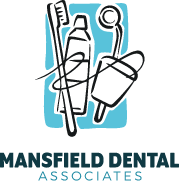Obstructive sleep apnea (OSA) is a condition where soft tissue in the back of the throat obstructs a person’s airways during sleep, with episodes of air loss that last ten seconds or more. It is a serious medical condition that is estimated to affect more than 10 million people in America. A person’s risk increases due to age, and if they are overweight. Your dentist can help determine if you have obstructive sleep apnea, and work to resolve the problem.
What Are The Signs Of Sleep Apnea?
There are several signs of sleep apnea. Snoring is the most commonly-known side effect, as well as a lack of restful sleep or sluggishness. An issue like struggling to sleep may seem unrelated to oral care, but this is why it is important to disclose any health concerns during your routine checkups.
Who Is At Risk?
Older patients and patients who are overweight have a greater risk of developing sleep apnea. A child or adult with swollen tonsils, or people who have more tissue in the backs of their throats, also carry a risk. That being said, if you think you might have sleep apnea, seek counsel from your dentist, even if you do not carry obvious risk factors.
Consequences Of Sleep Apnea
Sleep apnea is taxing on your circulatory system, because you work harder at night to breathe. Losing a good night’s rest impairs memory, focus, and attention, and can make you more vulnerable to depression. The struggle to breathe also taxes your blood pressure, which means sleep apnea can put you at a serious risk for a heart attack or a stroke.





Recent Comments